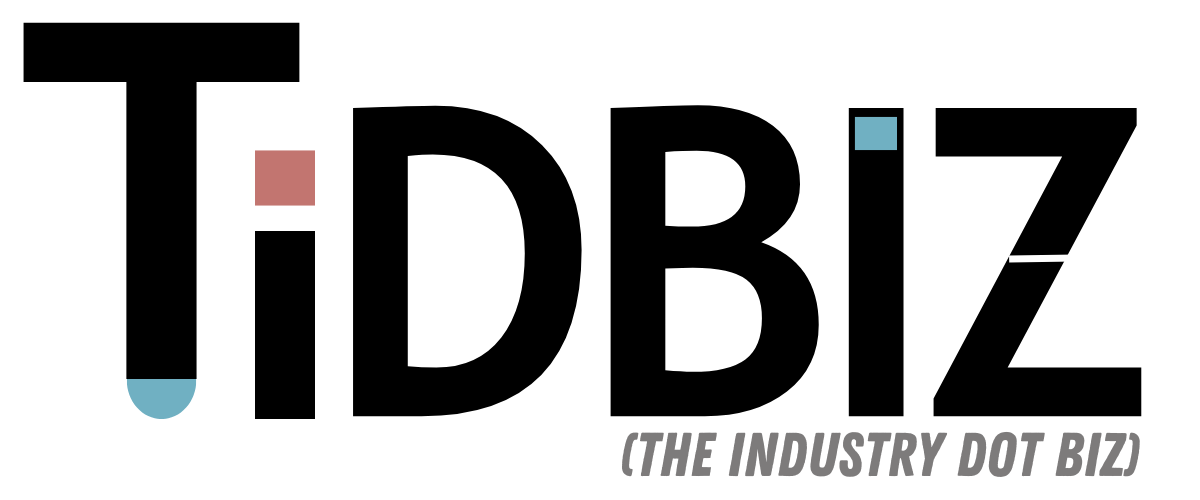Nearly 1 in 5 musicians face mental health issues. Yet, their music helps heal and connect us. The music world is changing how we see emotional health. Artists are using sound to break stigma and start important talks about mental health.
Creative stars like Racquel Jones are leading the way. They show that being open is a sign of strength, not weakness. By sharing their true stories, musicians help others feel less alone.
Music is more than just songs. It’s a way to share feelings and connect with others. Artists are changing how we see mental health. They show that talking openly can change how we view it.
From rock to hip-hop, musicians are speaking up about mental health. They create safe places for fans to talk about their feelings. Their bravery is changing how we think about mental health.
The Connection Between Music and Mental Health
Music is more than just entertainment. It has deep psychological benefits that affect our mental and emotional health. Studies show that music can change our brain chemistry and mood.
Research into music’s effects on the brain is exciting. Different parts of music, like rhythm and lyrics, affect our brain in unique ways. Sound waves can actually modify brain chemistry, lowering stress and boosting happiness.
Emotional Regulation through Musical Experiences
People use music to manage their feelings. When they’re feeling down, they turn to certain songs or genres. This shows how music helps us heal and stay strong emotionally.
The Neurological Impact of Sound
Our brains react deeply to music. Studies find that music can lower stress, reduce anxiety, and improve our mood. It lets us share feelings in a way that words can’t always do.
Music doesn’t just enter our ears – it resonates through our entire emotional landscape.
Seeing music as a mental health tool helps us talk more openly about emotional health. It shows us that music can be a powerful way to support mental wellness.
Voices of Change: Artists Speaking Out
The music world has become a key place for artists to talk about mental health. Musicians are helping change how we see mental wellness. They share their personal stories, breaking down old stigmas.
Well-known artists are opening up about their mental health journeys. Selena Gomez has talked about her anxiety and bipolar disorder. She’s helping make mental health talks more normal.
Musicians Who Share Their Stories
Artists like Logic and Demi Lovato are big voices for mental health. They talk about their struggles, inspiring fans to seek help. They show that mental health issues aren’t something to be ashamed of.
Impact of Personal Narratives on Fans
“By sharing our stories, we create safe spaces for healing and understanding,” says mental health advocate and musician.
When musicians talk openly about mental wellness, they set a great example for fans. Their stories show strength, encourage getting help, and help people feel less alone.
The impact of artists talking about mental health goes beyond music. It starts important conversations in our culture, changing how we see mental health.
The Role of Music Therapy
Music therapy is a powerful tool for mental health treatment. It offers new ways to heal and support those facing psychological challenges. This method uses music to meet emotional, cognitive, and social needs of patients with various mental health issues.
The benefits of music go beyond just entertainment. Trained music therapists use music to help patients explore their feelings, lower stress, and find ways to cope. Patients can participate through making music, listening, or expressing themselves creatively.
Understanding Music Therapy
Music therapy for mental health uses professional techniques to help those with different psychological challenges. Clinicians use special methods to help patients deal with emotions, improve communication, and develop better emotional responses.
“Music can heal the wounds which medicine cannot touch” – Debasish Mridha
Clinical Success and Transformation
Studies show music therapy can greatly help with depression, anxiety, and post-traumatic stress disorder. Patients often see big improvements in their mood, self-awareness, and emotional control through music therapy.
Music therapy addresses many aspects of wellness, making it a complete approach to mental health care. The mix of sound, rhythm, and personal expression offers a unique way to heal and grow.
Genres that Promote Healing
Music is a strong tool for mental health, bringing unique benefits beyond therapy. Different music styles offer special ways to improve emotional health. They help people deal with tough mental challenges.
Music’s healing power goes beyond just fun. Each style has its own emotional impact. This makes music a special way to support and calm the mind.
The Power of Classical Music
Classical music is a deep healing force. Studies show it can lower stress, blood pressure, and boost brain function. Mozart and Beethoven’s music can calm the mind and clear thoughts.
Music has an extraordinary capacity to communicate emotions that words cannot express, serving as a universal language of psychological healing.
Uplifting Effects of Pop and Rock
Pop and rock music have their own benefits. Their catchy beats and uplifting songs help people deal with feelings. These genres help create a sense of community and shared feelings.
Rock music lets people express deep emotions. Pop music often gives messages of hope and positive change.
Breaking the Stigma in Popular Culture

The music industry is changing how it views mental health. It’s working hard to break the stigma through stories and support. Artists are key in this fight, using their music to start conversations and build understanding.
Record labels are now seeing how important mental health is for artists. They’re setting up support programs to help with the stress of being a musician. These efforts include confidential counseling and safe work environments.
Major Label Mental Health Support
Big music companies like Universal Music Group and Sony Music Entertainment are stepping up. They’ve started mental health programs for their employees. These programs offer confidential counseling, stress management workshops, and easy access to mental health resources.
Artist-Organization Partnerships
Musicians are teaming up with mental health groups to spread the word. They’re working with organizations like the National Alliance on Mental Illness (NAMI). This helps make mental health talks normal and offers help to fans and industry folks.
“Music has the power to heal, connect, and transform lives,” says mental health advocate and music industry professional Dr. Sarah Thompson.
The music world is making big changes to support mental health. It’s all about starting open talks and creating safe spaces. This shows a big shift towards caring and understanding in the culture.
Community and Connection through Music
Music is more than just entertainment. It’s a powerful tool for mental health awareness. It shows how music can bring people together, creating strong social bonds and emotional support.
In the United States, music festivals are becoming safe spaces for emotional expression. Studies show that music together can help people feel less alone It gives them a chance to connect deeply with others.
Music Festivals as Safe Spaces
Local music scenes are key in building strong communities. Small venues, open mic nights, and choirs do more than just host music. They offer a place where people can share their stories through music.
Creating Support Networks through Local Music
Digital platforms have made these connections. They let musicians and fans reach out to each other, no matter where they are. Music is a universal language of healing, helping to bridge differences and build understanding.
By seeing music as a way to heal together, communities can turn personal struggles into moments of strength and connection.
Social Media and Mental Health Awareness
Digital platforms have changed how artists talk about mental health through music. Social media lets musicians share their stories, fight stigmas, and connect with fans deeply.
Artists use Instagram and TikTok to start conversations about mental health. These platforms let musicians share real stories that touch listeners who face similar issues.
Amplifying Messages Online
Streaming sites are key in spreading mental health awareness. Spotify and Apple Music offer playlists for emotional well-being. These playlists help listeners deal with stress and anxiety.
Music has the power to heal, and social media helps artists share that healing message directly with their audience.
Digital Platforms as Support Networks
Mental health awareness through music has found a special place online. Live streams, Instagram stories, and online concerts are new ways for artists to reach people worldwide. They break down old barriers of communication.
By using social media, musicians turn digital spaces into places of support. These communities focus on emotional wellness and understanding each other.
Music as a Coping Mechanism
Music is a strong tool for mental health, helping people find emotional wellness. Musicians On Call shows how it can change emotional states, bringing comfort and support to those facing mental health issues.
Music does more than just entertain. It has the power to heal, manage emotions, and create safe spaces. Mental health experts now see music as a valuable, non-invasive way to handle emotions.
Personal Stories of Musical Healing
Many famous artists have found a deep link between their music and mental health. Vulnerability through sound turns into a powerful tool, helping them deal with tough emotions and connect with fans deeply.
Crafting Wellness Playlists
Making special playlists can help with mental health. Different music genres offer different emotional journeys. From soothing classical to upbeat pop, each genre has its own way of affecting our mood and motivation.
Music isn’t just heard; it’s experienced as an emotional language that speaks directly to our inner landscape.
Seeing music as a tool for mental health can help people find their own ways to manage emotions and take care of themselves.
Future Directions in Music and Mental Health
The field of music therapy for mental health is growing fast. It’s exploring new ways to use technology and sound in treatments. Researchers and therapists are finding new ways to help people with mental health issues.
New technologies are changing how we do therapy. Virtual reality and artificial intelligence are making therapy more personal. They help therapists create treatments that fit each person’s needs better.
Innovations in Music Therapy Techniques
Scientists are working on sound that changes based on
how you feel. They’re making music that can help calm anxiety, improve mood, and help with thinking. This is all thanks to advanced algorithms and research in neuroscience.
Collaborative Projects Between Artists and Therapists
Artists and mental health experts are teaming up in new ways. They’re making therapeutic music albums and concerts that help your mind. This mix of art and therapy is changing how we think about healing.
The future of music therapy looks bright. It will use genetic data, brain scans, and new sound tech. This could make treatments more personal and effective, helping more people find peace.
How to Get Involved in Your Community
Music is a powerful tool for mental health awareness. It connects people in local communities. By joining grassroots efforts, you can improve your own well-being and help others.
Local musicians are leading the fight against mental health stigma. You can help by attending benefit concerts and buying merchandise from artists who support mental wellness. Joining community music events also supports these efforts.
Creative workshops are great for healing and making connections. Look for programs like drumming circles, group singing, or music meditation. These activities help you express emotions and build supportive networks.
Volunteering with music-based mental health organizations is another way to help. Schools, community centers, and local arts initiatives often need volunteers. Your time and effort can help create spaces that value emotional strength and creativity.
Supporting Local Musicians and Mental Health Initiatives
Find local music groups and mental health organizations. Many nonprofits use music as therapy. Your help can raise awareness and support those facing mental health issues.
Attending Workshops or Events Focused on Music and Wellness
Check out community calendars for music and wellness events. Art galleries, community centers, and performance spaces often host these. They offer deep insights and a chance to connect with others.







